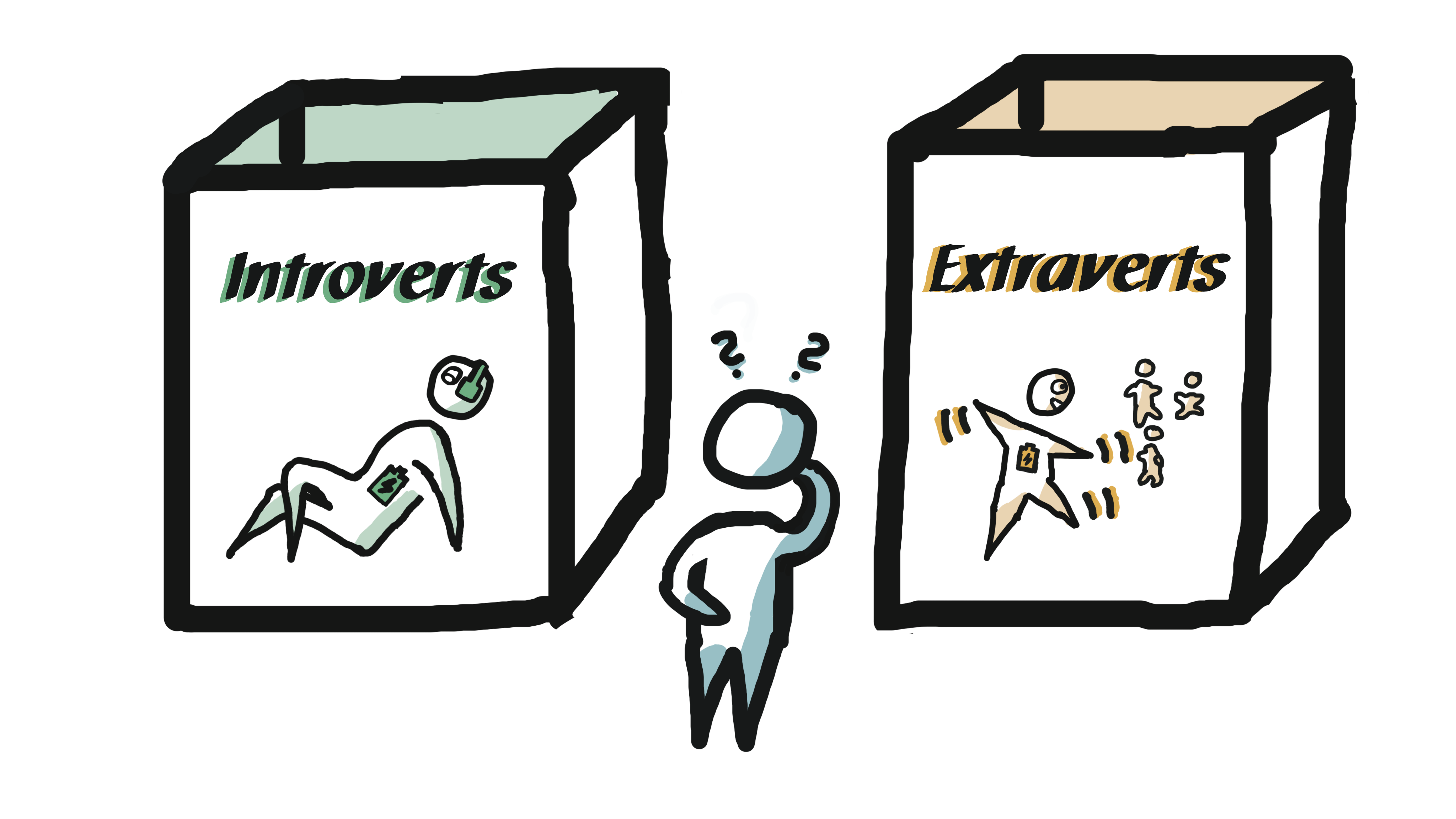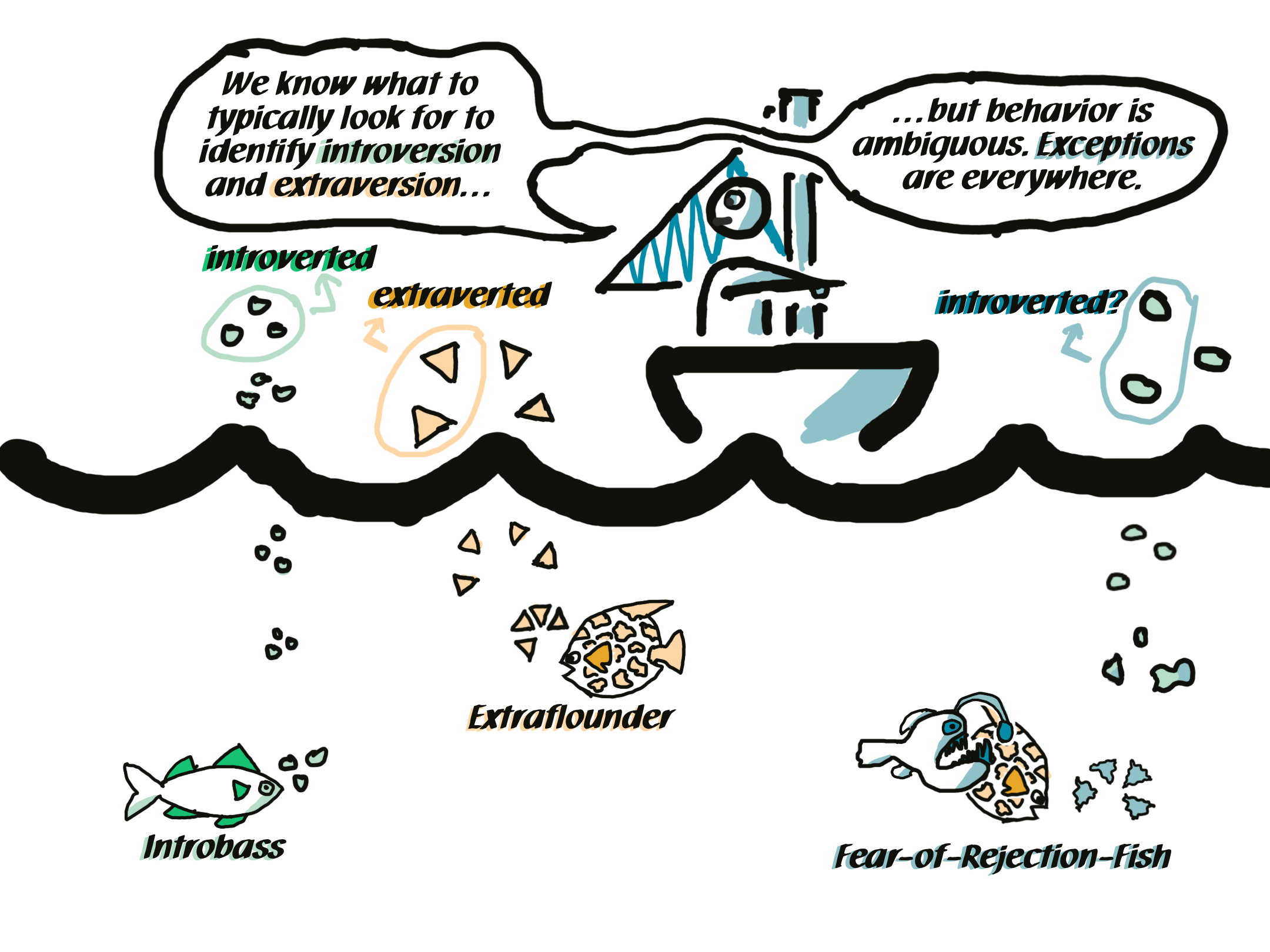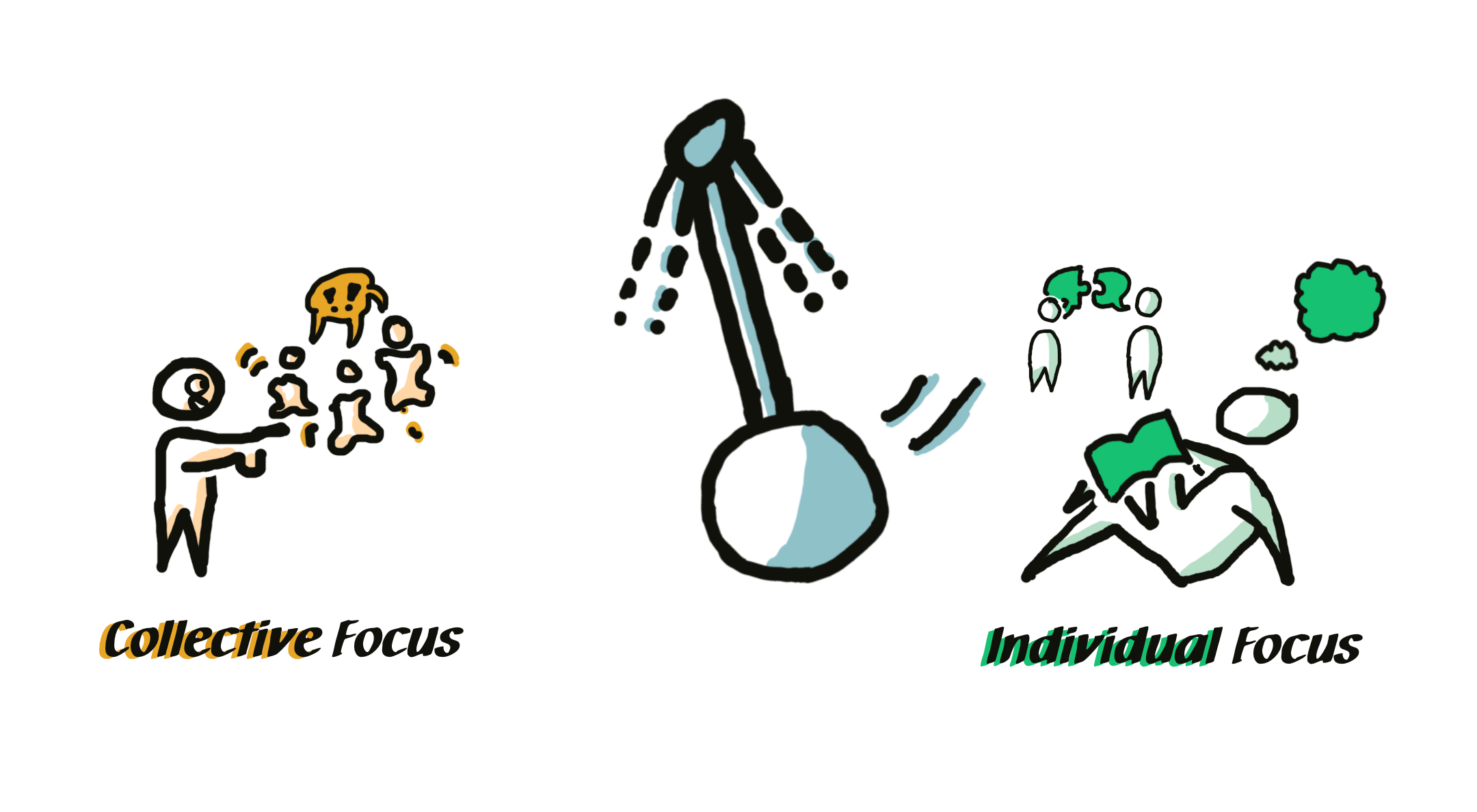Introversion vs. Extraversion
From trainings or everyday conversations, chances are you have heard statements like this:
"Introverts are shy and awkward at parties while extroverts are great speakers but cannot listen as well."
The cliches are not not just false. They can actively harm personal growth:
"I'm an introvert, that's why giving a presentation will always be tough for me."
"When I have a remark, I just need to get it out - I'm extroverted like that."
More than any other Big 5 personality dimension, Extraversion (and the other side of the same coin, Introversion) is misconstrued.
At the same time, a healthy understanding of Extraversion serves as tool for self-improvement and effective leadership. In this post, I outline my approach to this topic.
Extraversion versus Introversion
When I frame Extraversion / Introversion for training participants, I use this question:
What charges your batteries?
Do you get energy when you're in a crowd (lots of people/friends) or does it take energy? Do you get energy when you're by yourself or does it take energy?
This question is an effective balance between:
- being easy to understand and apply for participants and
- being sufficiently accurate to not become problematic. (more on that later)
A more accurate differentiation is your attention: What is your default focus?
Introversion is characterized by a tendency to focus inward: your thoughts and feelings.
Extraversion is characterized by a tendency to focus outward: others' behaviors and attitudes.

Popular Misconceptions
When covering this topic in training, I get to engage with participants' pre-existing understanding; and pre-existing misconceptions.
There are two misconceptions I regularly address:
Extraversion and Introversion are a gradient and not binary
For some, the concept is an 'either or'-scenario: There are introverts and there are extroverts, and they behave very differently. That understanding is difficult for many to apply:

This view with it's rigid border lacks nuance and encourages labeling people into one of two neat boxes ("Jenn is an introvert, are you sure she's the best choice for the presentation?").
Research indicates, that extraversion / introversion is - like most other properties - a spectrum across people:

This a more accurate representation of reality: There is a continuum and on there, people can have differently pronounced levels of extraversion / introversion. This also integrates concepts like the ambivert (people who tendencies of 'both sides').
Misdiagnosing: Cause vs. Effect
Misdiagnosis is suprisingly common. The issue here lies with a natural limitation of measurement:
When assessing extraversion / introversion, we base it on observable behavior. In other words the we observe (or ask to self-report) the behaviors which he hope to be the effect, of which extraversion /introversion is the cause.
Such behaviors might be tested in self assessment statements like:
- I regularly make new friends.
- At social events I rarely introduce myself.
While these statements correlate with extraversion, there is certainly not always 'clean' causation. This allows for misattribution:

Especially for (self-)misdiagnossed participants, this can turn into a profound revelation:
You can be shy and extroverted at the same time. You can be sociable and introverted at the same time.
Making use of Extraversion and Introversion
Undertanding extraversion / introversion provides tangible benefits. Like any self-awareness model, it provides a lens through which you can 'make sense of' yourself and others.
Like any element of self-awareness, this can be applied in very practical ways:
Inform a personal resilience strategy
After an emotional blow, how can you bounce back quickly? Awareness on what charges your batteries is helpful here: Will you get more out of a walk in the forest alone or with a loose acquaintance to keep you company?
You usually can't control when something bad happens. You can, however, control (to some degree) how you react to it.
Inform your Decisions
It’s no coincidence that the majority of lawyers are introverted just as no one should be surprised to find extroverts on a sales floor. Your tendency will give you an edge on some tasks and be a handicap at others.
The other way around your personality can help inform choices like your career or set self-developments goals.
Understand and balance others' needs
Like other personality aspects, extraversion and introversion reflect different needs (e.g. socialising vs. quietude).
Understanding how 'the other side' ticks makes it easier to empathize with those that 'work different'. This is especially important in facilitation, where both sides must be served by creating a harmonious experience. A good strategy to balance these forces is with a pendulum:

Readily available responses for the dreaded "what's your weakness"-question
Asking for someone's weakness (or, more conventionally labeled "areas of improvement") is still a surprisingly typical interview question. Using one's extraversion / introversion tendency makes an honest and very agreeable answer: Being part of your personality, it is difficult to argue any tendency being 'problematic', and it can easily be framed from both the positive and negative side, which undoubtedly will be what an interviewer is looking for.
To spur the imagination, here are a possible introversion and extroversion spin on impression management respectively:
"I have a tendency to focus on my own thoughts and feelings over the rest of the groups'. In the past, this has enabled me to bring unique and creative insights, but I might run off into the 'wrong' direction with an idea and it takes me longer to find feedback. That is why I..."
"I have a stronger social tendency. I usually have an easy time approaching my colleagues, asking for help, and networking. At the same time, I have been overly focused on others' opinions in the past when my own was just as valid. That is why I..."
There are many more ways to leverage Extraversion and Introversion, from gift giving to persuasive arguments. From here, you should find your own way in these waters. Good luck and be safe in the deeper ends!
